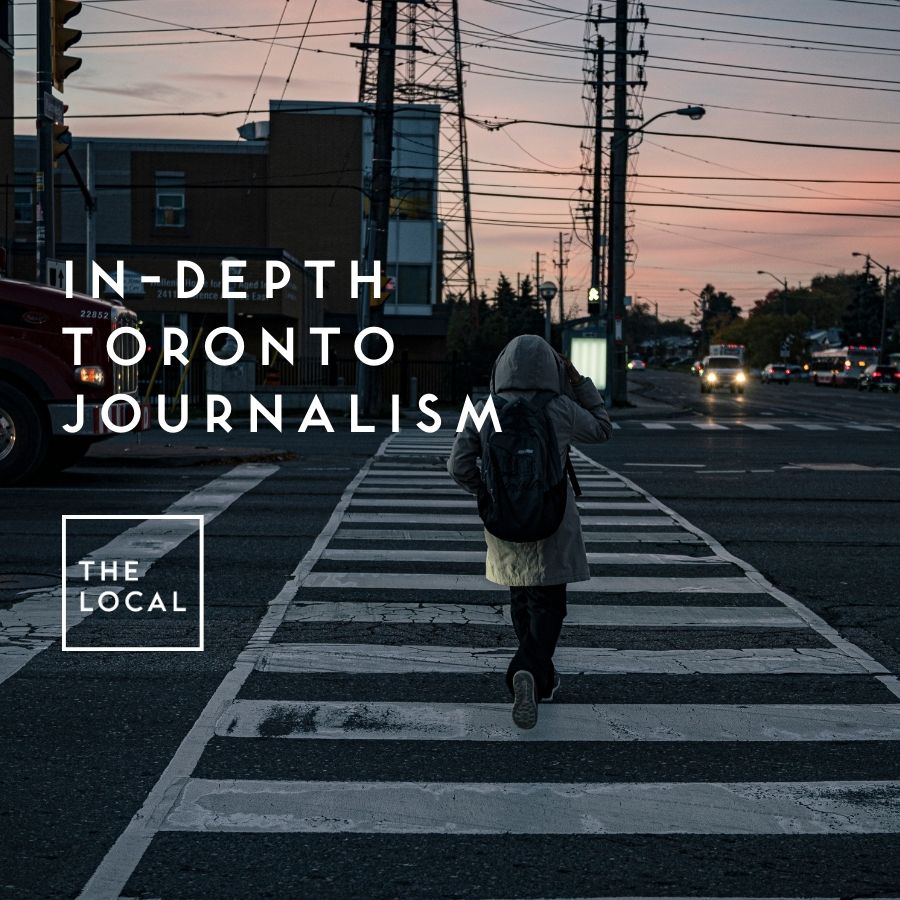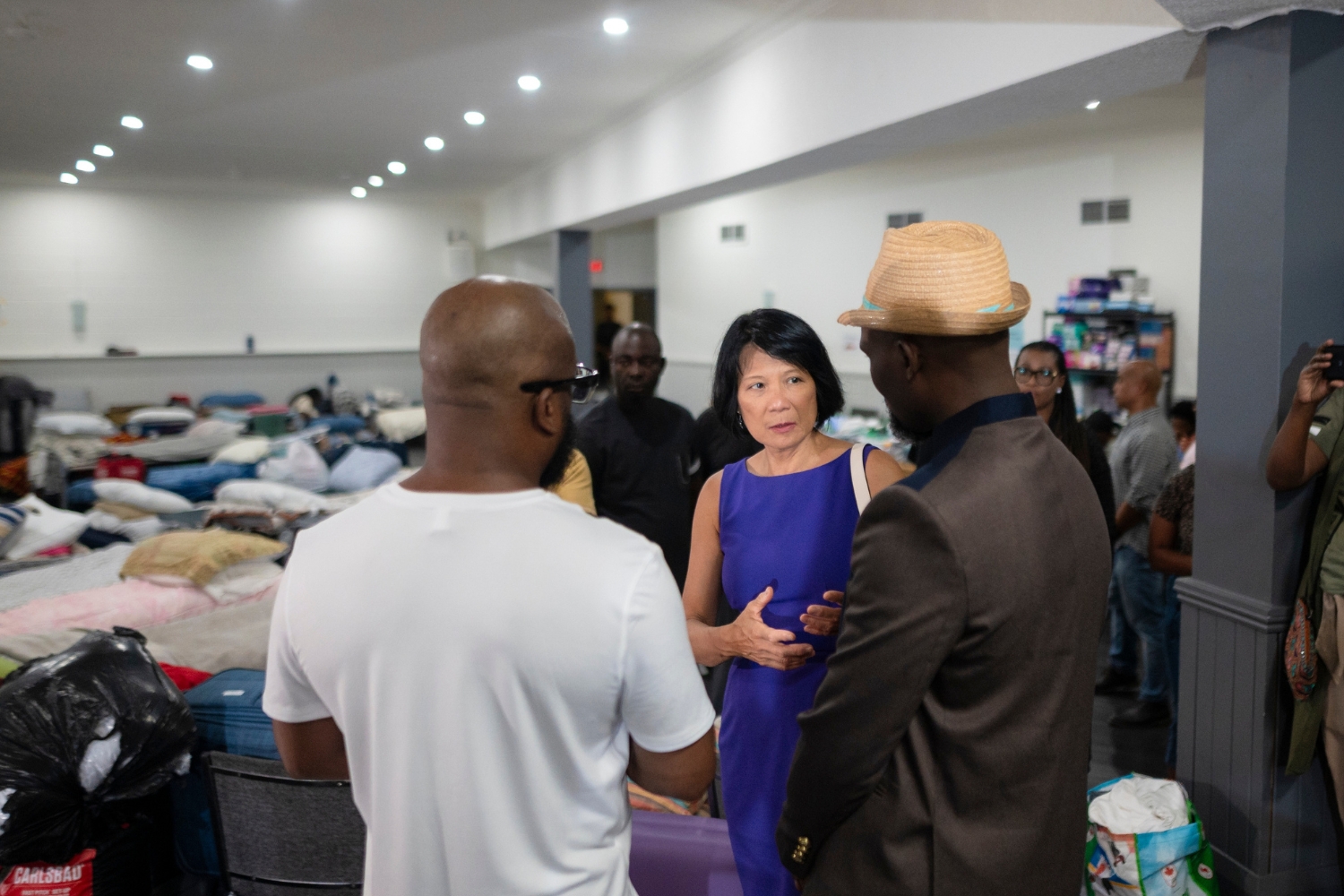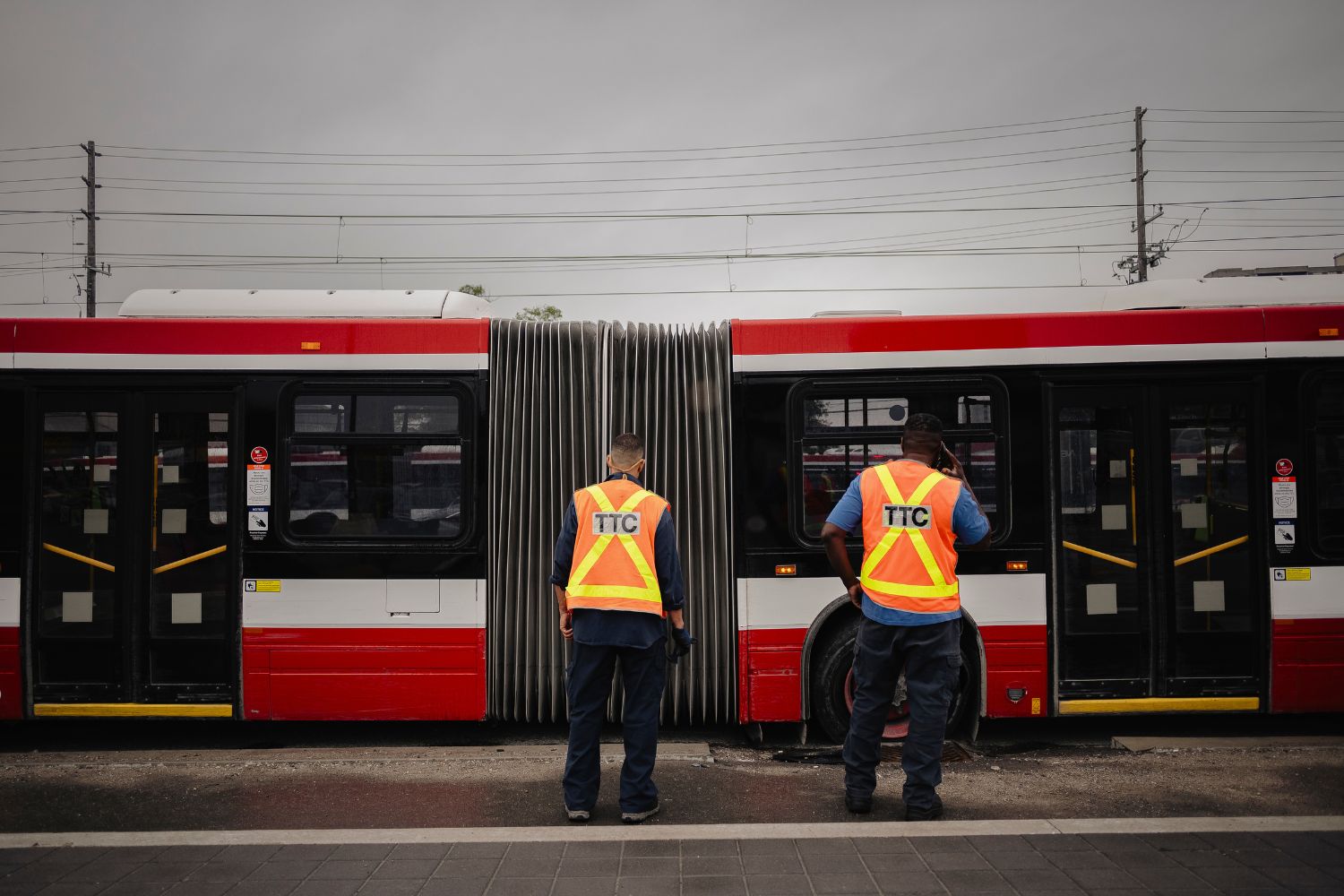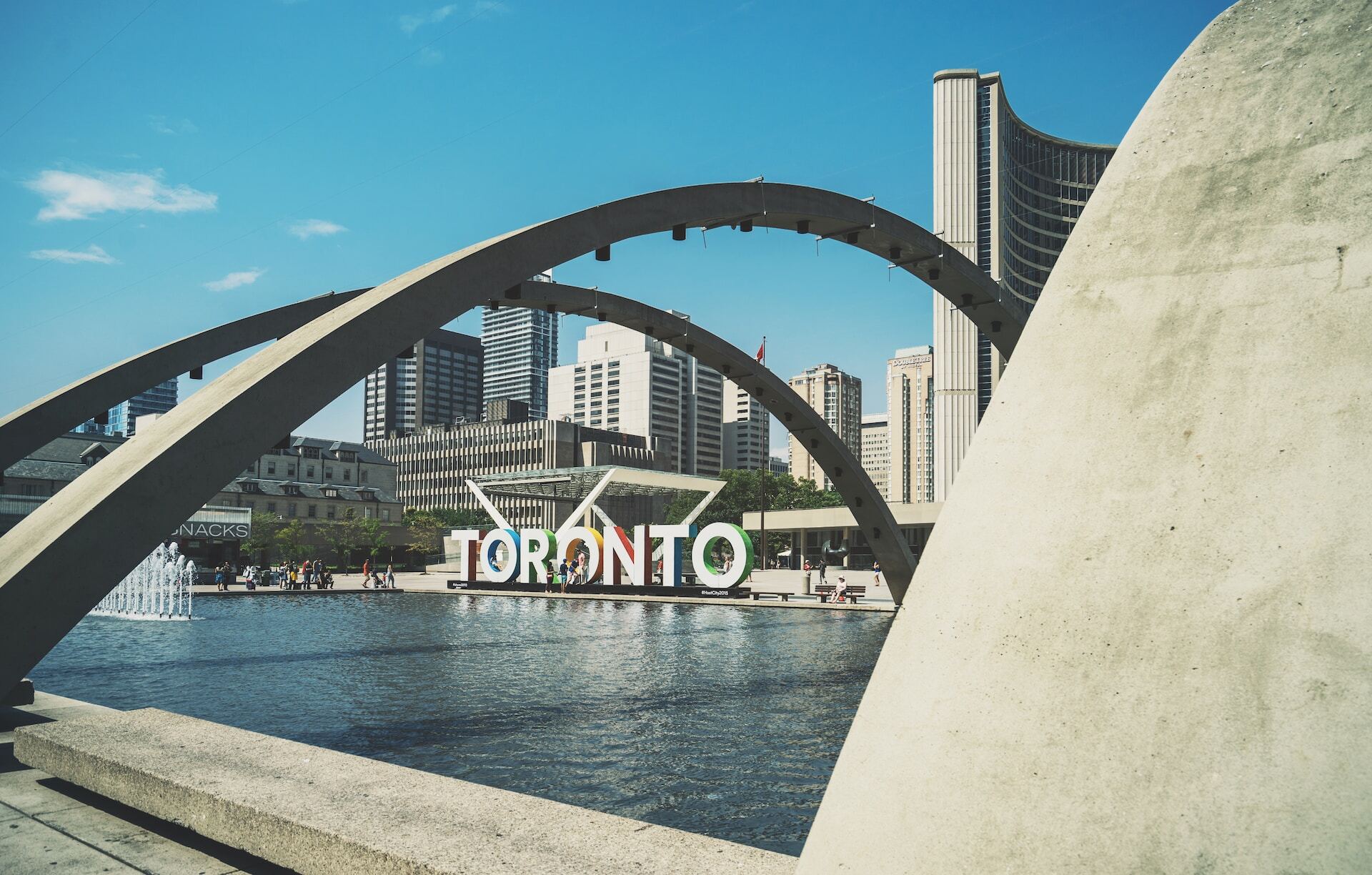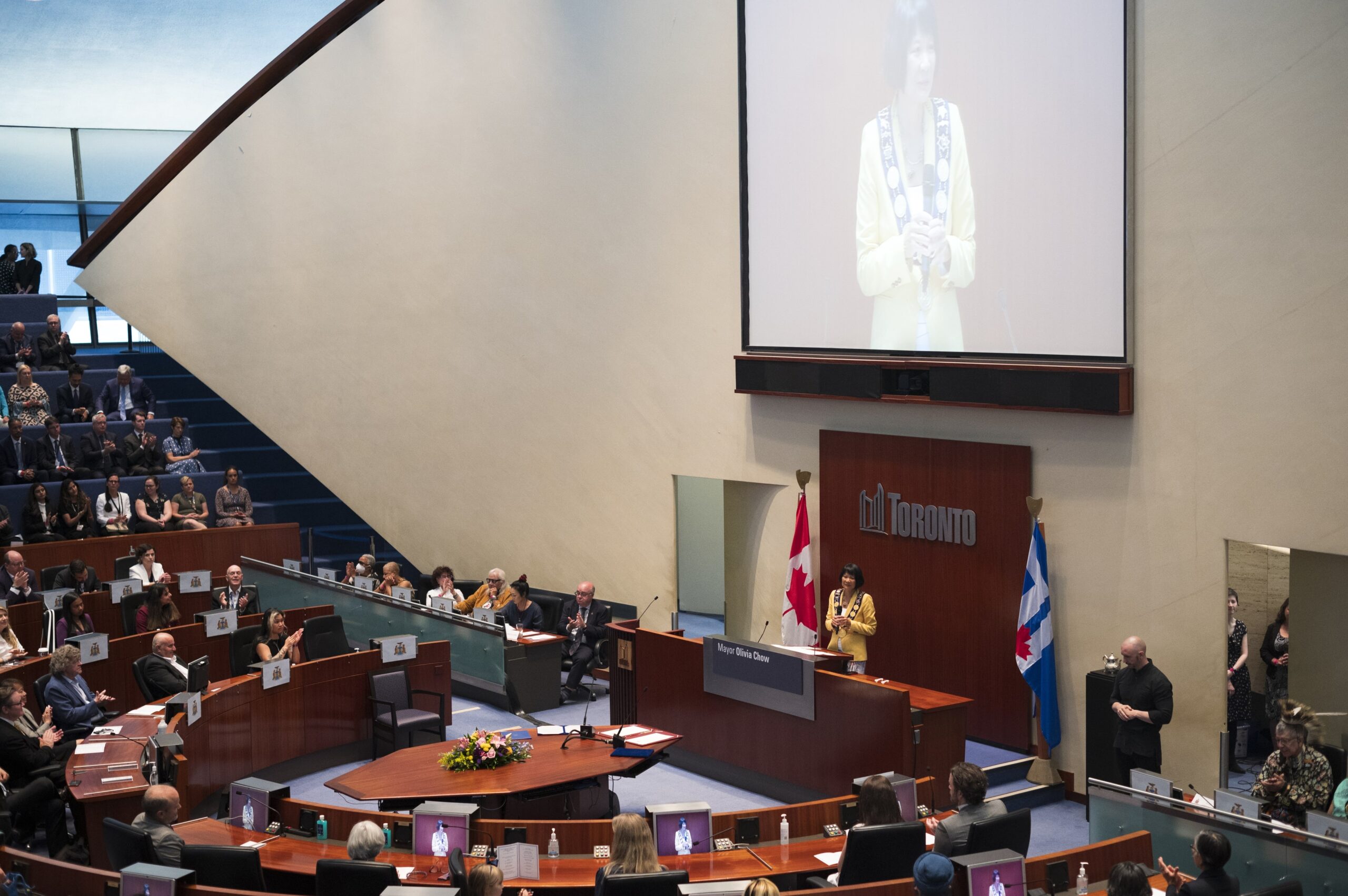
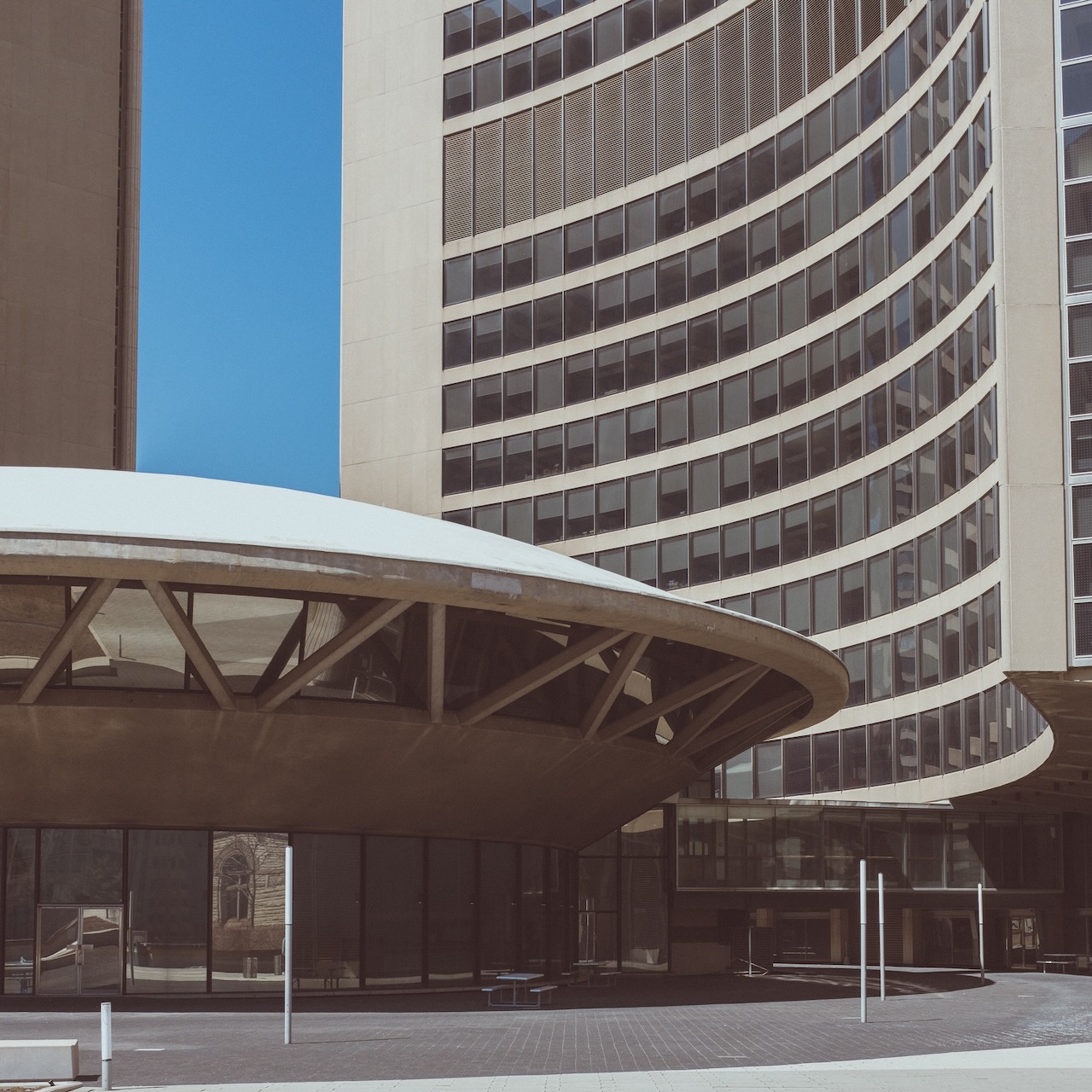
The first 100 days are crucial for a new mayor. In our new column, we’re following Olivia Chow’s first months in office—tracking her progress (or lack thereof) on election promises, who’s supporting and who’s impeding her, and everything else you need to know from City Hall.
August is traditionally city council’s month off, with only routine Bid Award Panel and Committee of Adjustment meetings scheduled. But last Thursday a handful of councillors trooped and teleconferenced in for two quick and almost perfunctory meetings. (At one point, things even got a little absurd as councillors tried discussing the by-election over a fire alarm’s intermittent beeping, while a visiting delegation from Nairobi looked on nonplussed.) Everything was wrapped up by mid-afternoon. However, the sweeping changes council approved will easily be some of Olivia Chow’s most important moves in her first 100 days.
The Slate
While council has the final authority on most items, committees can be powerful as well: they decide what council votes on. Major committee chairs also sit on the Executive Committee. And the Striking Committee, which met Thursday morning, decides who is on those committees.
With the Striking Committee freshly stacked with council progressives, it was unquestioned they’d pass Chow’s preferred slate of candidates. You can see the full and final list of appointments here. The following comparison of how often the members of various committees voted with John Tory shows the extent to which power is shifting away from former Tory allies.
Unsurprisingly, Tory tended to appoint his reliable allies as committee chairs and vice-chairs; equally unsurprisingly, relatively few of them are included in Chow’s picks. But considering all councillors must sit on some committees, I wondered whether the overall leaning of the major committees would shift—and the answer is yes.
Council’s conservatives have not exactly been shut out. For example, Frances Nunziata stays on as speaker. (She will probably be speaker until the end of time.) And Tory loyalists like Brad Bradford, Jon Burnside, and Nick Mantas have seats on key committees. Even perpetual naysayer Stephen Holyday is vice-chair of the General Government Committee and has a seat on the TTC board, among other positions.
Notably, deputy mayor Jennifer McKelvie is now on the Budget Committee and stays on as chair of the Infrastructure & Environment Committee. Throughout Tory’s tenure, McKelvie voted with the mayor about 95 percent of the time on key items; it will be especially important for Chow to make an ally of her. It’s possible that, just as former councillor Ana Bailão became a Tory ally, McKelvie will end up increasingly aligning with Chow.
The many progressives and centrists on Chow’s slate have created a wider political range; major committees are no longer clusters of similarly-voting councillors. The councillors in lead roles, however, are predominantly strong progressives.
Continuing the custom introduced by John Tory, Chow has appointed four deputy mayors, each representing a different borough: Ausma Malik for the old City of Toronto, Amber Morley for Etobicoke, Mike Colle for North York, and Jennifer McKelvie for Scarborough. (Only Malik has statutory powers; the other three positions are honorary.)
Two of the biggest “winners” are Shelley Carroll and Gord Perks, among the few remaining members of Council’s progressive old guard since the departure of councillors like Mike Layton, Kristyn Wong-Tam, and Janet Davis. Perks is Budget Committee vice-chair and chair of the Planning & Housing Committee. (The Planning & Housing vice-chair is Brad Bradford, an interesting choice. As a former planner, he’s certainly one of the best qualified, but his supply-oriented, free market-friendly approach to housing policy is a dramatic contrast to Perks’s advocacy for government-built affordable housing. If the two can work together constructively, the committee might get the best of both worlds.) It is a big step up for Perks, who, as one of the most inveterate opponents of Rob Ford and then John Tory, was sidelined by both administrations. You could say it’s one of the perks of having a progressive mayor.
Carroll is now vice-chair of the Economic & Community Development Committee and chair of the Budget Committee. Carroll and Perks leading the Budget Committee is probably the biggest change in direction. (Gary Crawford, appointed budget chief for three years in a row by Tory, is out, having resigned from council while running for MPP. More on that later.) However, things are far different today than when Carroll was former mayor David Miller’s budget chief. It isn’t just that the city’s financial situation is dire; the changes introduced by the province’s strong mayor legislation mean that the mayor’s office has far more control over the budget, with a smaller role for the Budget Committee. That said, Carroll and Perks are also two of Council’s biggest budget wonks, and they’ll undoubtedly have a lot of input in the upcoming budget, even if it’s not strictly binding.
Join the thousands of Torontonians who've signed up for our free newsletter and get award-winning local journalism delivered to your inbox.
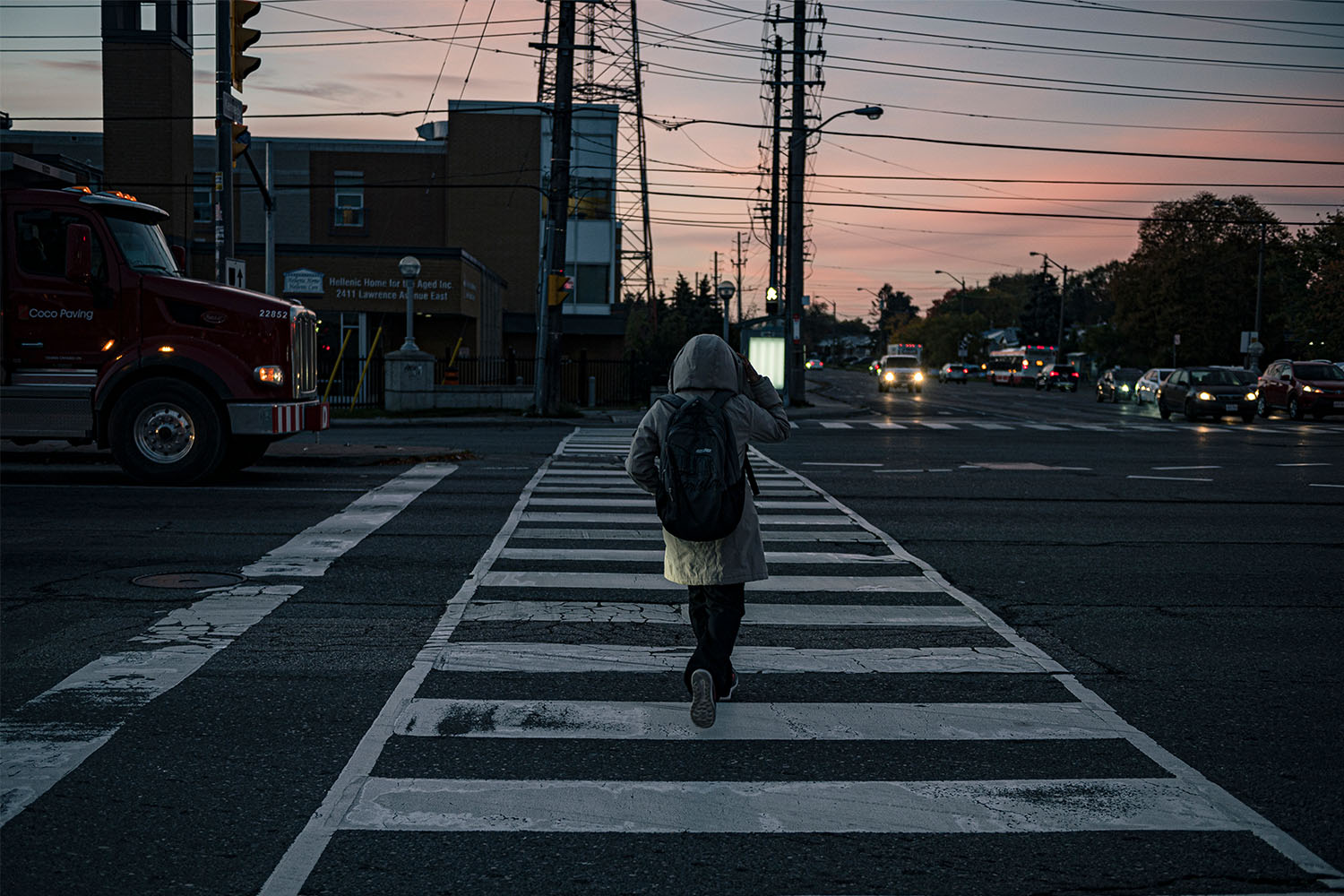
Of course, it’s not just the committees that got a revamp. Jamaal Myers and Josh Matlow, both noted advocates for better public transit, join the TTC board, with Myers as chair; a Scarborough councillor as TTC chair is a long overdue move. Former cop Jon Burnside and Amber Morley replace Vincent Crisanti and Frances Nunziata on the Toronto Police Services Board. Notably, while Chow, as mayor, can have a seat on the TPSB, she has declined. She has a fraught history with the board, and the police union has already come out swinging. It’s not hard to predict more conflict in the years to come—especially when it comes to the $1 billion police budget.
The By-Election Churn
Just like a chain of hermit crabs exchanging shells when the rare empty shell washes ashore, a political seat becoming vacant triggers a wave of by-elections as politicians leave their own seats to try to upgrade to a new one.
It’s possible to keep your seat while campaigning for a new one, but 1) it may be hard to do both at once, and 2) if you win, you don’t get severance from your old position.
Scarborough-Guildwood MPP Mitzie Hunter resigned to run (unsuccessfully) for mayor of Toronto. Next, long-serving Scarborough Southwest councillor Gary Crawford stepped down to run (unsuccessfully) for her seat. And, as council decided on Thursday afternoon, there will be a by-election for Crawford’s seat.
While council does have the power to choose between holding a by-election or appointing someone, in this case a by-election was a foregone conclusion: as a matter of principle, council doesn’t opt for an appointment unless it’s very late in the term. Appointment also gives the mayor an opportunity to “whip the vote,” pressuring councillors to appoint a candidate the mayor prefers. It’s in Chow’s best interest to leave it to the electorate.
Several likely candidates who have previously run for the seat have declared their interest; with no incumbent to compete against, we can likely expect many more. (Mitzie Hunter says she won’t be one of them, which is too bad—while she didn’t fare well in the mayoral election, her platform was easily one of the most comprehensive and thought-out, and she could quickly become a policy and budget power-player like Shelley Carroll.)
The city clerk’s office has yet to set the exact date, but it will be somewhere between November 27 and December 18. Prepare for some chilly canvassing in Scarborough.
As for the revamped committees, they won’t start meeting until mid-September. The next council meeting that isn’t solely devoted to urgent planning-related items isn’t until the second week in October. After Thursday’s quick break from the summer siesta, council gets to hit the snooze button again—but it will wake up with a radically reconfigured agenda and a new balance of power.
What’s Next
- The churches that took in asylum seekers sleeping on the street say governments need to step up with more funding.
- The city revoked Festival Eritrea’s permit after nine people were injured in clashes between protesters and festival-goers at Earlscourt Park. Later that day, protesters demonstrated again at the Sheraton Hotel. Similar events have occurred at festivals in Stockholm and Giessen, Germany. Protesters allege that the festivals support the repressive Eritrean government. This may well come up in the future at city council; it’s not the first time councillors or city staff have had to tackle the legitimacy of protests against governments abroad, or walk the narrow line between supporting diasporic communities and endorsing a state’s actions.
- The Ontario auditor general has released a report finding that developers and housing ministry staff drove the rushed process to remove environmental protections from the Greenbelt. While this doesn’t directly affect Toronto, it’s likely at least some councillors will want to get involved by endorsing other regional municipalities’ or organizations’ demands. Many councillors also sit on the board of the Toronto and Region Conservation Authority, whose jurisdiction overlaps with parts of the Greenbelt. But with many of Chow’s stated priorities heavily dependent on the province’s cooperation, will she choose to pick a fight she doesn’t necessarily have to?
